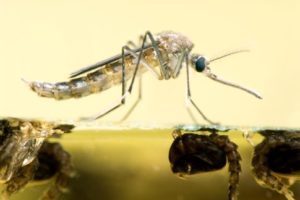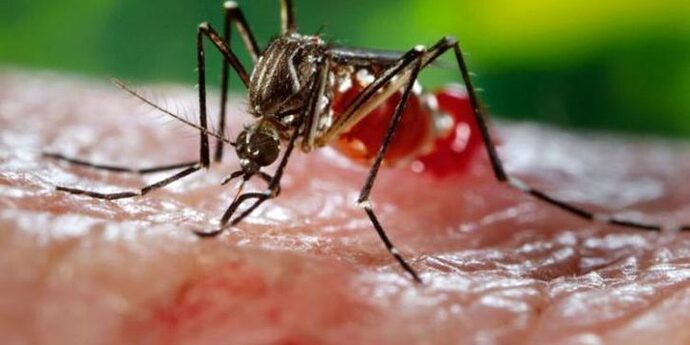World Nomads’ roving medical expert Dr. Erik McLaughlin MD explains why tropical travelers should get up to speed on Dengue Fever.

Dengue Fever symptoms
Dengue Sero-types
Watch out for repeat Dengue infections!
Dengue vaccine problems
Dengue prevention
Nicknamed “breakbone fever”, Dengue is known for its severe muscle aches and fevers. Being the most widespread Arborvirus in the world and effecting over 100 million people annually, Dengue should be no stranger to seasoned tropical travelers. The havoc a tiny mosquito and a simple virus can wreak is amazing, isn’t it?
A vaccine against Dengue Fever is reaching late-stage clinical trials shortly and researchers are still trying to determine two things; does it protect people from Dengue and will is increase their risk for death by Dengue?
Dengue fever symptoms
Dengue fever is a disease that features muscular aches and pains, fevers and often is accompanied by a fine petechial or “pin-point” rash. Severe cases of Dengue can progress to Dengue Hemorrhagic Fever (DHF) where the victim suffers from massive bleeding, frequently from IV sites, gums and rectum. People generally progress to DHF when they have been previously infected by Dengue, earlier in their life.
Basically, the more times you get Dengue, the greater your risk of death.
Dengue Sero-types
Part of the Arbovirus group, which just means they are spread via arthropods (insects), Dengue is divided into four serotypes, numbered 1-4. When a person gets infected with Dengue for the first time, the patient suffers the typical “dengue like” symptoms.
The real risk begins when the same person gets infected with another strain of Dengue, different than their previous illness. This is what leads to a more severe illness and progression to DHF where mortality can reach 50%. Then third time a person gets Dengue… well, you get the picture. Unfortunately, the first Dengue infection frequently goes unnoticed or is attributed to an “influenza like” virus.
Watch out for repeat Dengue infections!
The concept that multiple, subsequent infections of Dengue leads to worse disease is exactly the difficulty vaccine researchers are dealing with.
Researchers are still not sure what causes the second infection of Dengue to be more severe but it appears confusion of the immune system is to blame. When the body encounters something foreign and deemed a threat, like a virus, it produces antibodies to attack the invader. These antibodies often travel with white blood cells riding along side, ready to attack the virus, bacteria, etc.
When Dengue virus is first encountered, this is exactly what happens and the body generally defends itself well. A few copies of the successful antibody are then stored, in case the body runs into that same virus again. When the second and different strain of dengue is encountered, the antibodies and white blood cells go to attack. However, this new virus is just a little bit different and the antibody has trouble attaching properly. Unfortunately, the antibody can attach just well enough to allow the virus access to its white blood cell passenger, introducing the virus to a whole new type of cell and a great opportunity to rapidly reproduce.
Dengue vaccine problems
The question vaccine researchers are concerned about is simple. If we vaccinate a person against dengue, are we increasing their chances of going right to DHF and skipping their first (safer) infection? Fortunately, this is why researchers are not yet producing a vaccine for the public, yet.
Researchers have recently published (Clinical and Vaccine Immunology) that they have identified a test that looks specifically at this issue, working with cell cultures. Much more research needs to be done, before a decent vaccine is available for general use. However, I will be watching their efforts, along with the 112 other countries where Dengue is endemic.
Dengue prevention
Methods of Dengue prevention center on not getting bit by mosquitoes. This is best done with a multi-step approach of using a bed net if sleeping outdoors or with open windows, applying insect repellent to skin (DEET) and clothing (permethrin) and wearing long sleeves and pants when outdoors.
Read more stories from World Nomads to help keep you travelling safely. WorldNomads.com – an essential part of every adventurous traveller’s journey.
